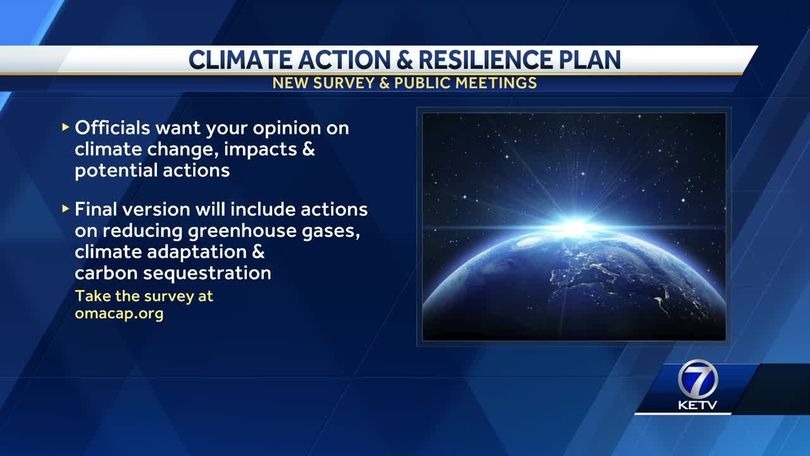Omaha, Nebraska, has been diligently working for almost three years on formulating an action plan to tackle the challenges posed by climate change and enhance resilience within the community.
On Monday, the city hosted the first of four public open houses, inviting community members to learn, engage, and voice their opinions on the draft plan goals.
This initiative follows a year-long process of data analysis aimed at establishing baseline information, identifying vulnerabilities, and pinpointing potential areas for improvement.
While significant progress has been made, city planners and consultants emphasize that public feedback remains crucial and could influence the final draft of the plan.

“This is just the beginning of a long-term journey,” remarked Ted Redmond, a consultant from paleBLUEdot, underscoring the dynamic nature of the project.
The Omaha Climate Action and Resilience Plan (CARP) is currently in the drafting phase, with the overarching objective of achieving climate readiness, resilience, and carbon neutrality by 2050.
City Council President Pete Festersen expressed pride in the initiative and encouraged community involvement, emphasizing that the ultimate implementation of the plan will be driven by the community in the years to come.
The city-appointed consultant has outlined preliminary goals across eight key areas where emissions reduction efforts could be focused, including transportation, building energy usage, and waste management. However, these goals are not set in stone.
Feedback received, such as the interest in curbside composting expressed during the first virtual meeting, is being seriously considered for incorporation into the next draft.
“We’re still exploring various options, and given the public interest in composting, it’s evident that pursuing a composting program could offer significant value,” noted Robert Laroco from the city planning department.
Furthermore, suggestions regarding promoting or subsidizing energy-saving measures for both renters and homeowners have been welcomed and are being taken into account.
“We value your specific ideas and encourage you to share them through the provided form on the CARP website,” urged Redmond. “Your input is invaluable to us.”
The input form is accessible on the CARP website under the “get involved” section. Nearly 60 individuals participated in the virtual meeting, with the majority staying for the question-and-answer session.
Officials assured participants that all input would be summarized, compiled, and relayed to the planning team for consideration as they refine the plan and contemplate actionable steps forward.


